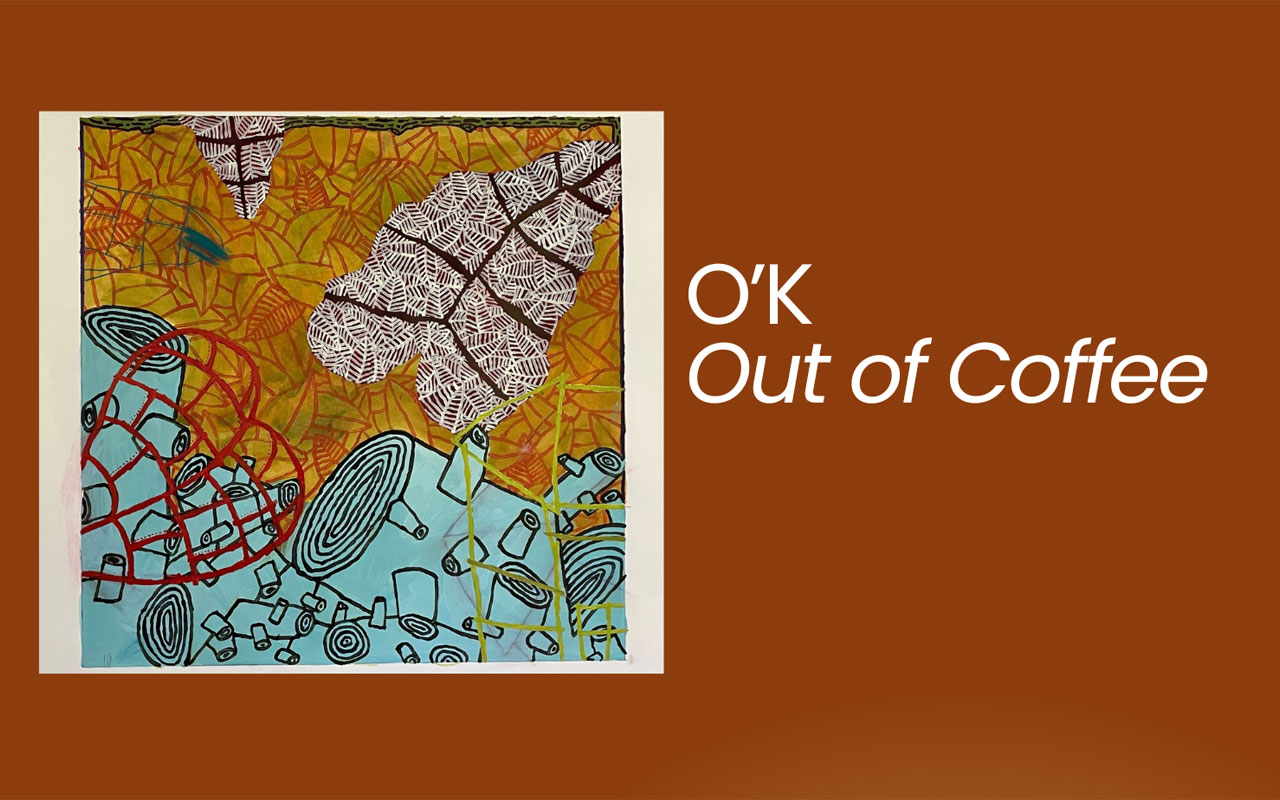
Self-released, September 2023
Having jammed together since 2015, Ryan El-Solh and Carmen Q. Rothwell—respective guitarist and bassist for experimental jazz group, Scree—and legendary drummer Gregg Keplinger have finally managed to record as the trio O’K for their new record, Out of Coffee.
The debut album comes out of a single, “minimally planned” studio session. O’K’s tangible intimacy shines through, regardless. The work moves away from the Arabic-Mediterranean timbre and aromatic acoustics of Scree’s recent album towards a sparse, discordant soundscape. El-Solh’s distortions range between moaning and humane to split and grizzled in tone, Keplinger’s interventions are gently destabilizing, and Rothwell brings a tight contrasting presence throughout.
One may be surprised, then, to find this electrified, rarefied atmosphere populated by interpretations of American songbook standards. Absent are sultry voices or orchestral backing. Rather, abstracting and acid-testing nostalgic and sentimental compositions becomes a reverential act of profanation for the group. Echoes of Scree’s inspiration from Palestinian poet Mahmoud Darwish are evident; we are carried through stark “desert-haunted visions;” classic reveries evoking elusive ephemeral desiring are translated into lonely hauntings, the beauty and anguish of “how much past tomorrow holds.”
A division is clear between the first and second halves of the album. The first three tracks are bold breaks from tradition in their melodic and rhythmic interpretations. The facade of enchantment gives way to tinny hats and a lonely bass, fading dissonance, the extirpation of rage; island charms ring out in an abandoned apocalyptic mall without losing their richness. In “I’m A Fool To Want You,” we have here neither sobered-up Sinatra’s bare-it-with-me confession nor the lip-biting Lady in Satin’s she’s-gotta-have-it attitude; instead, the refrain is masterfully replayed as the stuttering, sputtering of a heart unresolved, choking on itself and driven by a martial percussion into a noir-Western desolation.
In the final three tracks, the trio settles into a more classic songbook style—if still in the metallic desert. “Stardust” is in the lineage of the Carmicheal original, gratitude for a scintillating remnant of the past. Most surprising is the clear influence of a show tune quality to the original “Out of Coffee,” moving between an ethereal atmospheric punk and a shimmering sing-song melody. Alongside discordant harmonies and decaying pop cadence, the trio’s magic is in constructing joyful and colorful play on a sparse canvas. The subversion is never nullifying: love for these standards is palpable and the jocularity of three old friends riffing is necessarily infectious.
By the end, one finds lyrical avant-jazz with Northwest roots challenging us to revisit the Great American Songbook. And to think: How did we get there?